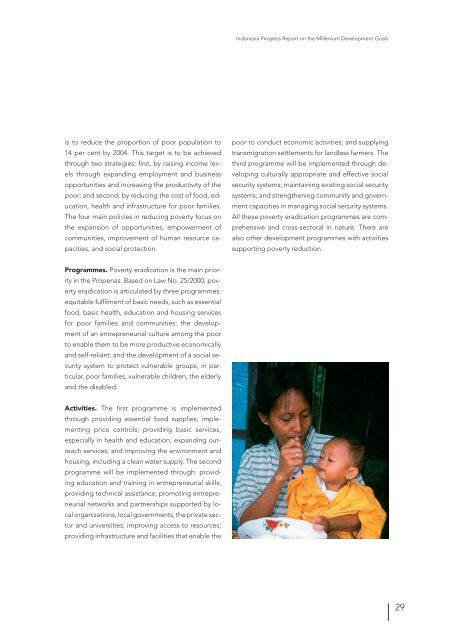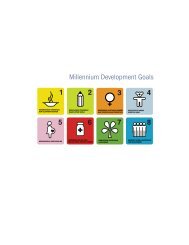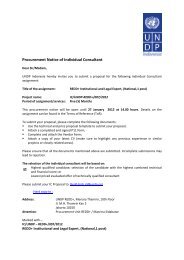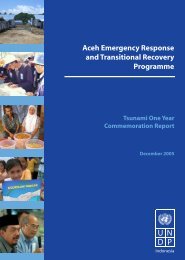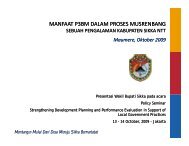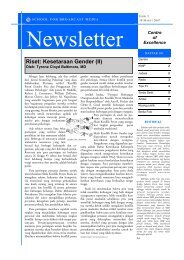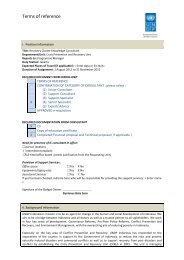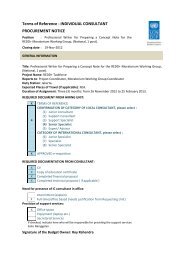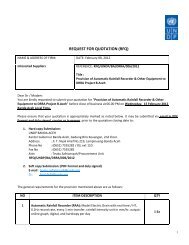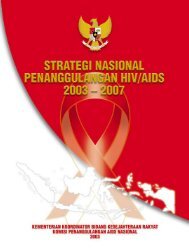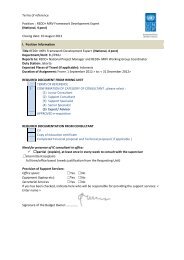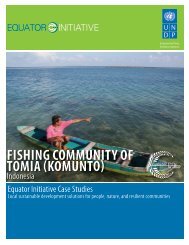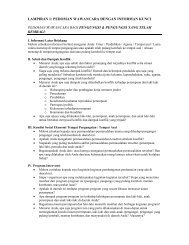English - UNDP
English - UNDP
English - UNDP
- No tags were found...
You also want an ePaper? Increase the reach of your titles
YUMPU automatically turns print PDFs into web optimized ePapers that Google loves.
Indonesia Progress Report on the Millenium Development Goalsis to reduce the proportion of poor population to14 per cent by 2004. This target is to be achievedthrough two strategies: first, by raising income levelsthrough expanding employment and businessopportunities and increasing the productivity of thepoor; and second, by reducing the cost of food, education,health and infrastructure for poor families.The four main policies in reducing poverty focus onthe expansion of opportunities, empowerment ofcommunities, improvement of human resource capacities,and social protection.poor to conduct economic activities; and supplyingtransmigration settlements for landless farmers. Thethird programme will be implemented through developingculturally appropriate and effective socialsecurity systems; maintaining existing social securitysystems; and strengthening community and governmentcapacities in managing social security systems.All these poverty eradication programmes are comprehensiveand cross-sectoral in nature. There arealso other development programmes with activitiessupporting poverty reduction.Programmes. Poverty eradication is the main priorityin the Propenas. Based on Law No. 25/2000, povertyeradication is articulated by three programmes:equitable fulfilment of basic needs, such as essentialfood, basic health, education and housing servicesfor poor families and communities; the developmentof an entrepreneurial culture among the poorto enable them to be more productive economicallyand self-reliant; and the development of a social securitysystem to protect vulnerable groups, in particular,poor families, vulnerable children, the elderlyand the disabled.Activities. The first programme is implementedthrough providing essential food supplies; implementingprice controls; providing basic services,especially in health and education; expanding outreachservices; and improving the environment andhousing, including a clean water supply. The secondprogramme will be implemented through: providingeducation and training in entrepreneurial skills;providing technical assistance; promoting entrepreneurialnetworks and partnerships supported by localorganizations, local governments, the private sectorand universities; improving access to resources;providing infrastructure and facilities that enable the29


